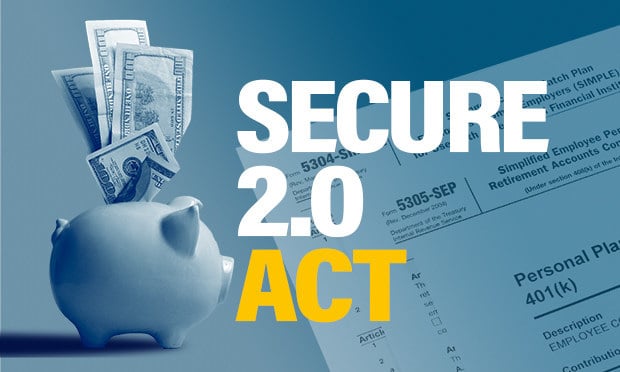<p>GALESBURG, Ill. – After spending nearly 40 years running a credit union and several years after that remaining active in CUNA, John Adams has a lot to recall about his career. While health problems these days have slowed the former energetic and outspoken Adams, he still has some strong opinions about the evolution of the credit union movement and the direction he says credit unions seem to be headed. Adams merged 32 credit unions into his own over his career, but now he thinks that, maybe, credit unions are getting too big, too much like banks. "Bigger is not always better," he says now, but concedes, "I'm overly critical; the banks are worse than the credit unions." His friends in the credit union movement, though, remember Adams as someone whose advice was always on target. "I found John to be very insightful," said Richard Ensweiler, president of the Texas Credit Union league who worked with Adams when Ensweiler was president of the Illinois Credit Union League. "He came from a small town but was able to look beyond." And, he added, "John gets right to the point." Richard Heath, currently executive vice president and chief administrative officer of the Illinois league also remembers Adams as a valued colleague. "He was very up on governance," Heath said. "He was very active in all regards on Illinois (credit unions) and on the national level." Adams, 74, spent nearly 40 years running a credit union before retiring in 1985, though he remained active in CUNA for several years after his retirement. From 1960 until 1985 he led Prairieland CU of Galesburg (now part of Galesburg Midwest Employees CU, a $22 million institution). He was also a director of the Illinois league for 23 years. He's still a member of Galesburg Midwest. He was a CUNA director from 1967 to 1990. Adams said his greatest satisfactions in the credit union movement came from two different efforts. One was his work to expand funds transfers. He guided a pilot study of share drafts that in 1975 that included 20 credit unions. He also served as chairman of CUNA's Electronic Funds Transfer Committee that began the long process that led in the late 1970s to an equitable EFT system. "It amazes me how we spun our wheels and today it's such a simple thing," he said. While he is pleased about the electronic funds transfer, he noted that, "I don't think share drafts worked like they should have." Adams' other great success is the organization of Mid-States Corporate CU, a leading corporate credit union. "That whole type of credit union was a mess when we got started," he recalled. "Now it's serving the purpose it was created for." He served as Mid-States president from 1976 to 1978. Adams first got involved in a credit union in 1949, shortly after he took a job at Butler Manufacturing Co. in Galesburg. When he and his wife, Shirley, moved into a new apartment, they found the stove didn't work. Just out of college, and with no money, a co-worker suggested he go to the company credit union for a loan. Until that time, he didn't know what a credit union was. He borrowed several hundred dollars for the new stove. He worked his way up in Butler Manufacturing and by 1960 he was a buyer in the purchasing department and running the credit union part time. "I showed a little interest (in the credit union), that's all you had to do, and the first thing I knew, I was heading a credit union with $26,000 in assets," he said. Then, the purchasing manager quit, and Adams was offered the job. He disliked the wining and dining he saw as part of the purchasing manager's job and, rather than turn down the promotion outright, he suggested that it was time for someone to run the growing credit union full time. His suggestion was accepted and he became treasurer and manager. A few years after he began running the credit union he convinced a co-worker, a janitor who had never saved any money before, into opening an account and putting in $5 a week. "A couple of years later," Adams said, "he came into the credit union office for the first time to borrow some money, it wasn't more than $150 or so. I said, `Well, Charlie, you know you do have money in shares that you could draw out if you want to.' He said, `What do you mean?' I said, `Well, you got 200 some dollars in the credit union.' He said, `You mean I got $200? I never had $200 in my life.' That's what credit unions are all about." Eventually, Adams grew the Butler credit union grew into Prairieland. While he's proud of his work there, he's still skeptical about the size credit unions have grown to. "I wasn't looking to get bigger, (the credit unions merged into Butler and later Prairieland) were too small," he said, "they shouldn't have been organized." Credit, Adams also believes, is too easy to get. "We tried to teach thrift, we were not just lending money." But he realizes his assessment may be a little harsh, and buttressed by his own fortunate circumstances. In 1983, Adams was one of the first big winners of the Illinois Lottery, pocketing $2 million. These days, heart trouble – he's on his second pacemaker – has slowed the former tyro. He's had to give up his golf game and so he spends a lot of time watching television. Even watching TV, though, churns his opinions about the state of personal finance. "I hear banks advertising for second mortgages when you don't have any equity in your home," he said. "It sounds to me like you just have to pull up to the drive-through and they'll have a check waiting for you." -</p> <p>[email protected]</p>
Complete your profile to continue reading and get FREE access to BenefitsPRO, part of your ALM digital membership.
Your access to unlimited BenefitsPRO content isn’t changing.
Once you are an ALM digital member, you’ll receive:
- Breaking benefits news and analysis, on-site and via our newsletters and custom alerts
- Educational webcasts, white papers, and ebooks from industry thought leaders
- Critical converage of the property casualty insurance and financial advisory markets on our other ALM sites, PropertyCasualty360 and ThinkAdvisor
Already have an account? Sign In Now
© 2024 ALM Global, LLC, All Rights Reserved. Request academic re-use from www.copyright.com. All other uses, submit a request to [email protected]. For more information visit Asset & Logo Licensing.








